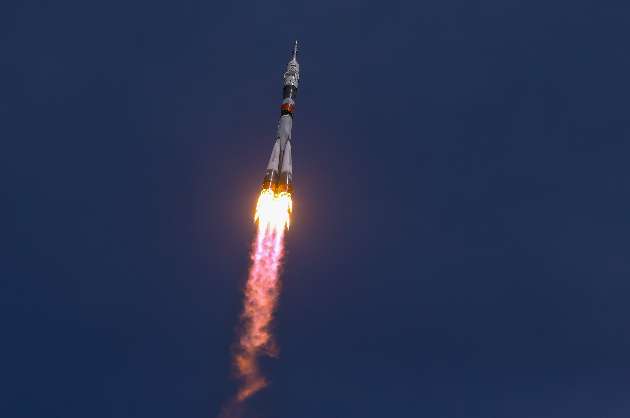New York, Long-duration space travel could lead to permanent brain volume changes as well as pituitary gland deformation in astronauts, warns a study.
For the study, published in the journal Radiology, the researchers performed brain MRI on 11 astronauts, including 10 men and one woman, before they traveled to the International Space Station (ISS).
The researchers followed up with MRI studies a day after the astronauts returned, and then at several intervals throughout the ensuing year.
MRI results showed that the long-duration microgravity exposure caused expansions in the astronauts' combined brain and cerebrospinal fluid (CSF) volumes.
CSF is the fluid that flows in and around the hollow spaces of the brain and spinal cord.
The combined volumes remained elevated at one-year postflight, suggesting permanent alteration.
"What we identified that no one has really identified before is that there is a significant increase of volume in the brain's white matter from preflight to postflight," said study lead author Larry Kramer from the University of Texas Health Science Center at Houston, US.
"White matter expansion in fact is responsible for the largest increase in combined brain and cerebrospinal fluid volumes postflight," Kramer said.
MRI also showed alterations to the pituitary gland, a pea-sized structure at the base of the skull often referred to as the "master gland" because it governs the function of many other glands in the body.
Most of the astronauts had MRI evidence of pituitary gland deformation suggesting elevated intracranial pressure during spaceflight.
"We found that the pituitary gland loses height and is smaller postflight than it was preflight," Kramer said.
The researchers also observed a postflight increase in volume, on average, in the astronauts' lateral ventricles, spaces in the brain that contain CSF.
However, the overall resulting volume would not be considered outside the range of healthy adults.
The changes were similar to those that occur in people who have spent long periods of bed rest with their heads tilted slightly downward in research studies simulating headward fluid shift in microgravity.
Additionally, there was increased velocity of CSF flow through the cerebral aqueduct, a narrow channel that connects the ventricles in the brain.
A similar phenomenon has been seen in normal pressure hydrocephalus, a condition in which the ventricles in the brain are abnormally enlarged.
Symptoms of this condition include difficulty walking, bladder control problems and dementia.
To date, these symptoms have not been reported in astronauts after space travel.
Moreover, extended periods in space have long been known to cause vision problems in astronauts.
More than half of the crew members on the ISS have reported changes to their vision following long-duration exposure to the microgravity of space.
April 15 (IANS)




























